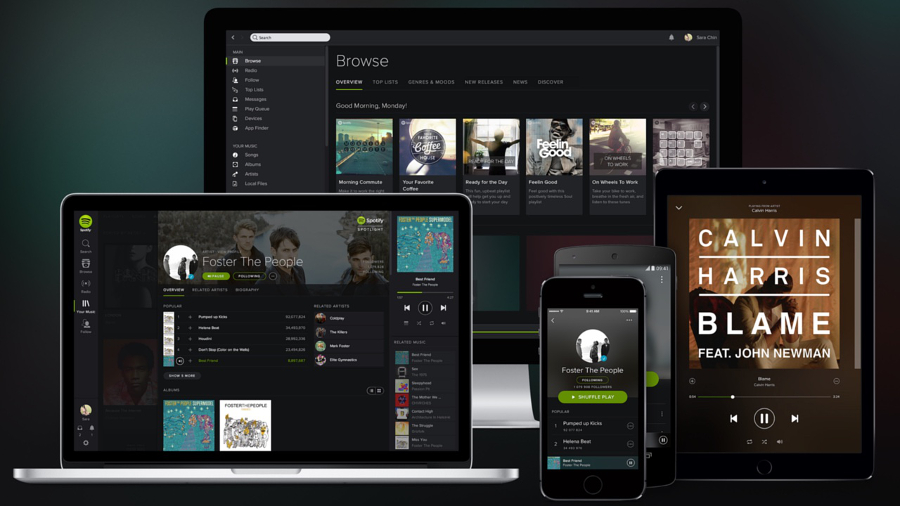The reasons why Sweden is a hotbed for digital innovation
Globally successful apps, games and digital services are everywhere

Sign up for breaking news, reviews, opinion, top tech deals, and more.
You are now subscribed
Your newsletter sign-up was successful
With almost as many tech startups as Silicon Valley, Stockholm in Sweden is fast becoming one of the global IT hubs. Internationally successful startups such as Spotify, Candy Crush and Minecraft creator Mojang all hail from Stockholm. We know about giants like Volvo, Saab, Ericsson, IKEA, H&M, ABB and Husqvarna, but how did a bunch of Swedish startups – from Skype, Spotify, Linux and Mojang to MySQL, Wrapp, Klarna, Memeto and LifeSum – get so damn big?
A Creandum report showed that €2.6 billion (around £1.9 billion, $2.9 billion) is being generated per year from Nordic tech company exports, with more than half of this coming from Sweden alone. In this nation of nine million people, something is making tech tick.
Why are tech startups so numerous and successful?
Sweden's entrepreneurial purple patch is a direct consequence of the country's high taxes and generous cradle-to-grave welfare system. "There is free schooling, including getting paid a stipend for attending university, while healthcare is quite inexpensive and pensions are taken care of," says Jane Walerud, CEO of Stockholm-based Teclo Networks, and also a member of the Swedish government's Innovation Council. "It is relatively safe to start companies in Sweden, and more and more Swedes realise it." There's even a tax deduction for people who privately invest in startups.
Sweden is a risk-friendly place. "Sweden has a lot of safety nets from an income perspective, which reduces the risk of starting your own company," says Mattias Ward at Swedish startup Innometrics, who thinks that potential employees are also less wary of working for a startup. With cheap or free higher education, students from Sweden's excellent universities also do not have crippling levels of debt before they even start.

Fast internet
Technically speaking, Sweden has it all. "It has a strong culture of engineering, a world-leading telecom sector, a stable and well-functioning economy combined with a high internet penetration rate at an early stage of the internet era that resulted in a very potent mix," says Niklas Hedin, CEO at Swedish cloud-based tech company Centiro and Ernst & Young's Entrepreneur of the Year in the Best International Growth category.
Sweden is a nation of digital natives. "Stockholm is one of the most digitally connected economies in the world," says Niclas Sanfridsson, VP Nordic Region and MD Sweden at TelecityGroup. "Its overall broadband take-up rivals the early adopter cities in Asia, and over 91% of the population in Sweden uses the internet at least once a week."
Virtuous circle
Success breeds more success, with the likes of Spotify now inspiring a new generation of entrepreneurs and encouraging more 'angel funding' from abroad. "Most of Sweden's startups work in close proximity to each other and have formed a real innovation community," says Neil Sholay, Head of Oracle Digital EMEA, who thinks they drive each other to come up with disruptive ideas.
Sign up to the TechRadar Pro newsletter to get all the top news, opinion, features and guidance your business needs to succeed!
Swedish tech startups are also very good at developing the services to wrap around a product. "They don't build their business model on a product experience, but on a subscription experience, and this is what makes these companies so successful," says John Philips, Director of Northern Europe at Zuora.
What is it about Swedish culture?
The Swedish emphasis on design definitely helps foster tech-based companies, but there's plenty of hot air, too. "The way in which Nordic companies operate can be linked with the sauna culture," says Jean-Jerome Schmidt, ClusterControl Evangelist at Severalnines. "Whether you're the CEO of a company or a receptionist, once you're all sitting in a sauna together, barriers fall and everyone is at the same level."
"The country has a culture of 'all for one and one for all' – working without hierarchy and as an even unit," says Sean Farrington, UK MD and RVP Northern Europe at data discovery firm Qlik, which was founded in Lund, Sweden, in 1993. "Scandinavian companies realise that a business is only as good as its people."
And those people are free-thinkers with little awareness of class or status. "The intern's ideas are given as much respect as the CEO's, and a culture like this fosters genuine innovation," says Pär Hedberg, Chairman of THINGS, a new hardware hub that brings startups and large industry partners together in a collaborative environment. Hedberg also points out that Swedes are urbanised, secular, and very early adopters of new technology and ideas.
Jamie is a freelance tech, travel and space journalist based in the UK. He’s been writing regularly for Techradar since it was launched in 2008 and also writes regularly for Forbes, The Telegraph, the South China Morning Post, Sky & Telescope and the Sky At Night magazine as well as other Future titles T3, Digital Camera World, All About Space and Space.com. He also edits two of his own websites, TravGear.com and WhenIsTheNextEclipse.com that reflect his obsession with travel gear and solar eclipse travel. He is the author of A Stargazing Program For Beginners (Springer, 2015),
